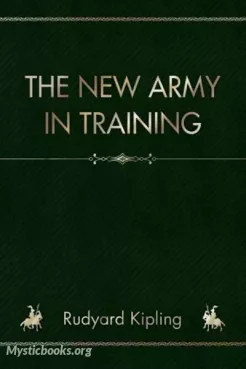
Introduction to The Philosophy of History
by Georg Wilhelm Friedrich Hegel
'Introduction to The Philosophy of History' Summary
Hegel begins by distinguishing three methods or modes of doing history: Original History, Reflective History and Philosophical History. To Original and Philosophic histories, Hegel assigns a single definition; on Reflective History, Hegel offers three sub-definitions.
Original history is like that of Herodotus and Thucydides, these are almost contemporaneous writings limited to deeds, events and states of society which they had before their very eyes and whose culture they shared. Hegel posits the goal of Original history to transfer "what was passing in the world around them, to the realm of representative intellect. An external phenomenon is thus translated into an internal conception. In the same way,the poet operates upon the material supplied him by his emotions; projecting it into an image for the conceptive faculty."
Reflective history is written at some temporal distance from the events or history considered. However, for Hegel, this form of history has a tendency to impose the cultural prejudices and ideas of the historians' era upon the past history over which the historian reflects.
Philosophical history for Hegel, is the true way. Hegel maintains that with philosophical history the historian must bracket his own preconceptions and go and find the overall sense and the driving ideas out of the very matter of the history considered.
Book Details
Language
EnglishOriginal Language
EnglishPublished In
1837Authors

Georg Wilhelm Friedrich Hegel
Germany
Georg Wilhelm Friedrich Hegel was a German philosopher considered one of the most important figures in German idealism. He is one of the fundamental figures of Western philosophy, with his influence e...
Books by Georg Wilhelm Friedrich HegelDownload eBooks
Listen/Download Audiobook
- Select Speed
Related books

The Tower of London by Walter George Bell
In the shadows of history, where secrets whisper through time, "The Tower of London" by Walter George Bell unveils a gripping tale that transcends cen...

Little Wanderers by Margaret Warner Morley
This book is a delightful exploration of the remarkable diversity and captivating habits of these little wanderers. With a keen eye for detail and a p...

With Sack and Stock in Alaska by George Broke
This is an exciting adventure book set in the captivating wilderness of Alaska. This classic piece of literature, takes readers on a thrilling journey...

Our Knowledge of the External World by Bertrand Russell
Bertrand Russell gave the Lowell Lectures in March and April of 1914; these lectures produced 'Our Knowledge of the External World'. Russell attempts...

Noiseless Patient Spider by Walt Whitman
LibriVox volunteers bring you eight different readings of Walt Whitman’s A Noiseless Patient Spider, a weekly poetry project. (Summary by Annie Colema...

The New Army in Training by Rudyard Kipling
An unexpected threat looms large, summoning the reluctant heroes of a nation to face a daunting challenge. As the familiar battlefields of Europe witn...

Psalm Of Life by Henry Wadsworth Longfellow
A Psalm of Life is a poem by Henry Wadsworth Longfellow that explores the themes of life, death, and the importance of living a meaningful existence....

Siddhartha by Hermann Hesse
Siddhartha is one of the great philosophical novels. Profoundly insightful, it is also a beautifully written story that begins as Siddhartha, son of a...

The Phenomenology of Mind, Volume 1 by Georg Wilhelm Friedrich Hegel
What is the nature of reality? How do we come to know what we know? The Phenomenology of Mind, Volume 1 by Georg Wilhelm Friedrich Hegel is a seminal...

On the Future of Our Educational Institutions by Friedrich Nietzsche
Nietzsche gives a series of lectures in Bale, Germany on the subject of German educational institutions, and what the best way forward.
Reviews for Introduction to The Philosophy of History
No reviews posted or approved, yet...